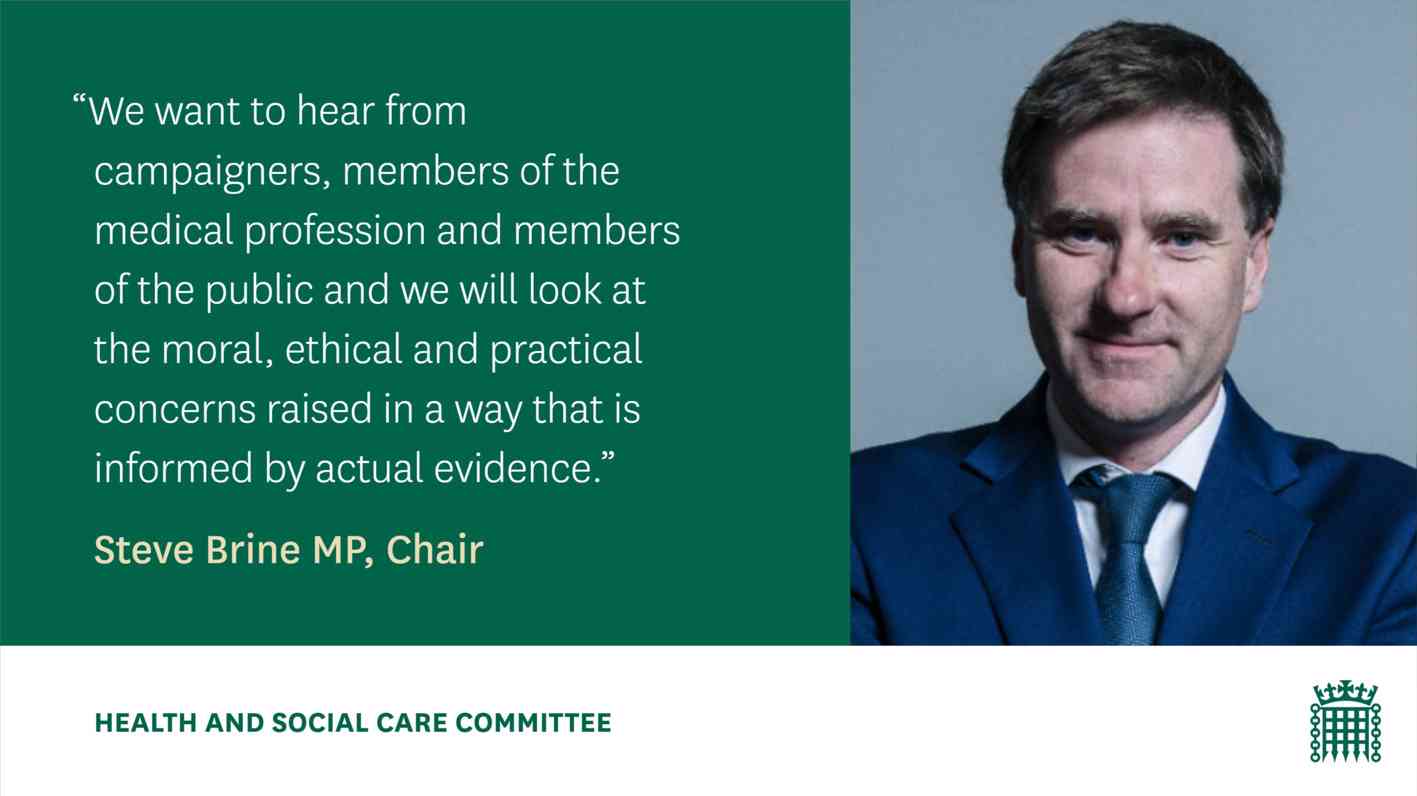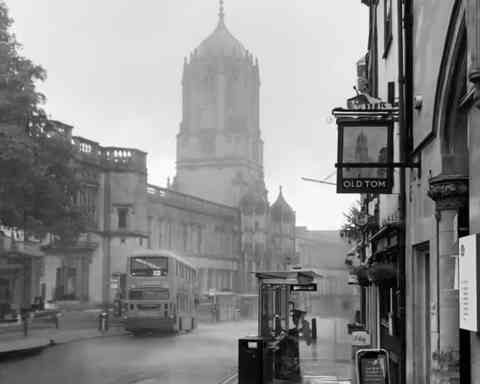Anscombe Centre Statement on Commons HSC Committee Inquiry into Assisted Suicide
Read our Briefing hereThe House of Commons Health and Social Care Committee has launched an Inquiry into assisted suicide, and is inviting comments from individual members of the public and interested organisations to comment as to their support or opposition to legalisation of that practice, and also what actions might be helpful to the debate surrounding it. Options for the latter include a “Citizen’s Assembly” [sic], further independent research, or a referendum.
The Inquiry itself also comes at a time when the Nuffield Council on Bioethics (NCB) is preparing its own Project investigating the subject, including the commissioning of a “Citizen’s Jury” [sic].
This proposal common to both the HSC Committee Inquiry and the NCB to consider the issue through so-called Citizens’ Assemblies / Juries is concerning. Evidence from Ireland and Jersey shows that such groups are easily manipulated in favour of negative changes in law and medicine.
In 2016-2017, a Citizens’ Assembly was formed to consider the issue of abortion, and in votes over when abortion should be legal and up to what point in pregnancy, the largest proportions of participants voted in favour of permissive abortion in all but one proposal provided. The journalist Mary Minihan reported in the Irish Times that “the consensus in the Oireachtas [Irish Parliament] is that the Assembly’s recommendations were an overly-liberal interpretation of the current thinking of middle Ireland on the issue”.
Similarly, in Jersey, the “Citizens’ Jury” set up by the local Government in 2020 to investigate euthanasia and assisted suicide (EAS) was deliberately selected on the basis of its participants’ views. Page 10 of the Jury’s Final Report showed that just over half (12) already believed that EAS should “definitely” be introduced, and a further almost-third (7) believed it “probably” should. This meant an overwhelming majority (19 out of 23) of the Citizens’ Jury had a bias in favour of EAS before even taking part, leaving just 4 people who were against it (2 “definitely”, and 2 “probably”).
This led to a very biased Jury and even though one person changed their mind from being in favour to being opposed to EAS, most had the same views at the end that they went in with. It was a predetermined outcome in favour of introducing those practices into Jersey law and medicine. Its final recommendations prescribed the most extreme proposals for EAS ever proposed in the British Isles in the 21st century, which went on to be entirely adopted by the States Assembly (the Jersey Parliament).
The Director of the Anscombe Bioethics Centre, Professor David Albert Jones, was involved in assisting the Citizens’ Jury in the Bailiwick to make sure participants were given as wide and qualitative access to information and views on the issue of euthanasia and assisted suicide as possible, and made the following comment after news of the composition of the Jury was released:
The experiences of other jurisdictions show how a Citizens’ Assembly / Jury can come up with very extreme proposals – much more extreme than proposals from elected politicians, courts, professional bodies or broad-based consultations – with the apparent but superficial veneer of public approval. Given such a danger, the creation of such a body would be a very dangerous gamble with people’s lives.
Given this risk to public safety and the common good, it is crucial that as many people engage with the Parliamentary Inquiry and not only oppose the introduction of assisted suicide into UK law and medicine per se, but any exploration of the issue that does not involve a serious investigative body such as a Parliamentary Select Committee.
Unfortunately, given that physician involvement in causing the death of patients is a deep and difficult subject worthy of considerable thought, the timeframe for answering the consultation is a short one – little over a month (submissions must be in by Friday 20 January), much of which is over the Christmas holidays during which time most people are distracted with the festivities of this time of year, and the busy-ness of the New Year.
The format of the Inquiry is simple however, and not time-consuming. The Inquiry invites participants to fill in a short online form of just six questions which should not take more than ten or fifteen minutes to respond.
To aid public engagement, the Anscombe Bioethics Centre has produced a Briefing to help anyone interested in responding, whether as an individual or as an organisation. The more who do so, particularly citing the increasing evidence of the negative effects of euthanasia and assisted suicide around the world, the better informed Parliamentarians may be.
We encourage as many people as possible to contribute their own submission to the Inquiry, so as to properly inform public and Parliamentary debate on this issue, and help maintain a more just and compassionate society.
END
Note:
- For media comment from Anscombe Centre Staff, please e-mail media@bioethics.org.uk, or call 07900925708.
- On Saturday 10 September 2022 (World Suicide Prevention Day), the Anscombe Bioethics Centre hosted a Conference at Blackfriars in Oxford on ‘Suicide Prevention and Assisted Suicide: Legal, Clinical and Ethical Perspectives’. The Conference covered the right to be prevented from committing suicide, the challenge of suicide prevention among people eligible for “medical aid in dying” and the impact of legalising assisted suicide on suicide rates. The entire set of talks in the Conference can now be viewed on YouTube via our playlist, here.
- The Anscombe Bioethics Centre is publishing a series of briefing papers on EAS, clarifying the issues at stake in the social, political, and medical discussion, examining the definitions concerning and practical consequences of legalising physician involvement in assisting a patient to end their own life, or directly causing their death. You can read the full briefing paper series on its dedicated page on our website, here.
- The Parliamentary Office of Science and Technology, which provides information for the United Kingdom House of Commons and House of Lords, recently published a POSTBrief on ‘Assisted dying’ in September this year. It cites two of the Anscombe Centre’s briefing papers (on definitions and on slippery slopes) and six further papers written or co-written by staff of the Centre. The Director acted as one of the contributors and one of the external reviewers for the POSTBrief along with other academics, some of whom were strongly in favour of a change in the law and some of whom were equally strongly opposed. The POSTBrief understates the evidence against legalising EAS. Nevertheless, it accepts the accuracy and usefulness of the language of ‘physician-assisted suicide’; acknowledges that no Royal Colleges and no disability organisations (other than ad hoc campaigning groups), support the legalisation of EAS; notes that where it has been legalised, the number dying in this way has increased and there have been extensions of legislation and eligibility criteria; and provides evidence that, in countries with euthanasia, some very clear abuses have taken place, for example life-ending without request (non-voluntary euthanasia).

Most recent
The Closure of the Anscombe Bioethics Centre
02 July 2025
It is with immense sadness we announce that staff have recently been informed of ‘the closure of the...
Press Release – Never Abandoning the Fight for Ethical Care
23 June 2025
The Anscombe Centre’s Statement after the Commons Third Reading of the Terminally Ill Adults (End of...
Press Release – Politeia Publishes Paper by Anscombe Centre Director Outlining Dangers of Assisted Dying Bill Ahead of Key Vote
18 June 2025
Ahead of the Third Reading vote on Kim Leadbeater’s assisted suicide Bill on Friday, think-tank Poli...
Support Us
The Anscombe Bioethics Centre is supported by the Catholic Church in England and Wales, Scotland, and Ireland, but has also always relied on donations from generous individuals, friends and benefactors.



